
Bellona nuclear digest. May 2024
A survey of events in the field of nuclear and radiation safety relating to Russia and Ukraine.
News
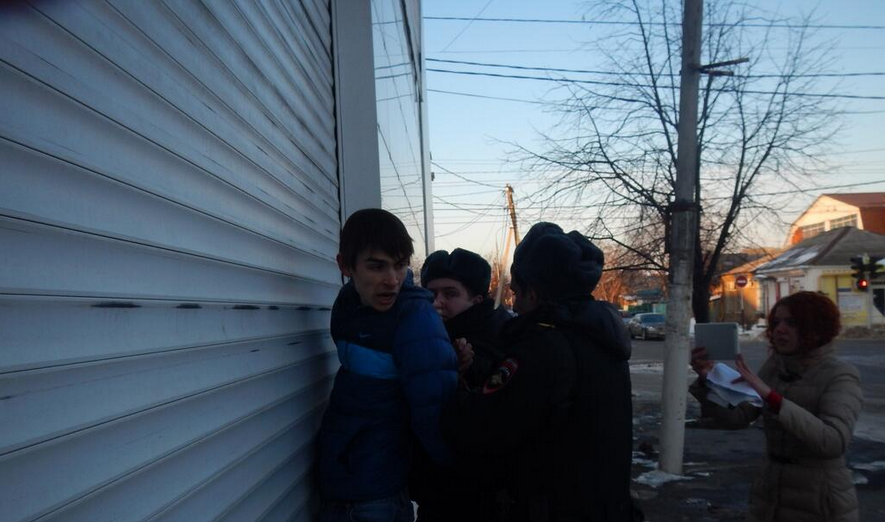
Publish date: December 3, 2014
News
The Environmental Watch on the North Caucasus, the mouse whose roar focused international attention on rampant corruption and ecological devastation surrounding the Sochi 2014 Winter Olympic Games, has appealed a decision liquidating the group and criminalizing its activities to Russia’s Supreme Court.
EWNC sent the appeal to Russia’s Supreme Court six days ago, which buys the organization some time before actual closure – and perhaps even a new lease on life in the event the Supreme Court goes in its favor.
The renewal of court proceedings initiated by EWNC yesterday provoked a groundswell of frustration against the courts from other heavyweight ecological organizations in Russia, many of whom had previously shied away from defending EWNC’s tireless efforts to expose the gritty environmental and financial underpinnings of Vladimir Putin’s vanity Olympics in Black Sea resorts areas and national parks and nature reserves.
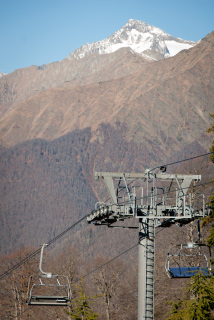
EWNC’s grassroots investigations culminated in a comprehensive and damning report – the only one of its kind – on the long term damage to the North Caucasus National Park, Sochi’s wetlands, the poisoning of rivers, the drying up of the area’s water table, and gaudy sweetheart estates built by Putin and his cronies along the Black Sea coast.
EWNC yesterday vowed to continue the court battle “to defend the constitutional rights of its members to association and the freedom of public organizations,” EWNC coordinator Andrei Rudomakha told Bellona in an email.
Group still documenting official abuses
But the group has, since the initial court decision to torpedo its existence and scratch it from Russia’s official roster of organizations, still been crusading to illuminate the ongoing environmental crises inflicted on the Black Sea coast by the Olympics – many of which it recently showed visiting reporters from Bellona – in the face of nearly constant surveillance, frozen bank accounts, and routine harassment of its members.
The liquidation order handed down on October 24 by the Supreme Court of the Republic of Agydeya, which neighbors the Krasnodar Region where the Sochi Olympics were held, and where the group often operates, cited a laundry list of charges including “treason against the state,” and “extremism” as reasons for shuttering the group’s activities.
The charges were dictated directly by Agydeya’s branch of the Russian Ministry of Justice, implying they came directly from Moscow.
The accusations also included as foundation to dissolve EWNC the notion that it hadn’t furnished certain documents for inspection, doesn’t have representative offices in six other regions where it conducts activities, as well as a vague reference stipulating EWNC was guilty of “other violations of federal law, bearing a gross and repeated character,” according to court documents shown to Bellona.
Incensed environmentalists
The new slog through court on appeal, however, has enraged Russian and international environmental groups.
“The liquidation of EWNC because the court hinted they are “extremist” is a another bizarre twist in Putin’s war on the NGO-community in Russia,” said Bellona’s Managing Director Nils Bøhmer. “EWNC’s only ‘crime; is that it has documented illegal activities surrounding the Sochi Olympic games.”
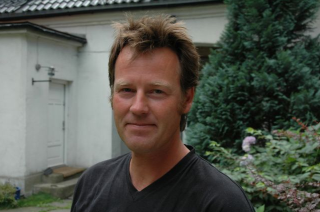
Bellona was one of nine organizations to sign a joint statement to the Justice Ministry on EWNC’s behalf that reads, in part, that, “The Ministry of Justice’s initiative to liquidate one of the most active public organizations, whose work is focused on guaranteeing the public’s most important rights and interests is a clear absurdity and more closely resembles unfounded reprisal.”
The organizations called on the high court to “approach as objectively as possible the consideration of the appeal,” and further urged the Justice Ministry to waive EWNC’s liquidation.
Individually, groups whose support for EWNC had been, at best, tepid until the release of its Olympic report hit an ecological nerve, spoke fiercely in its defense.
“I and all of Greenpeace hope that EWNC will be able to continue its work for the benefit of nature in Russia’s south,” wrote Ivan Blokov, head of Greenpeace Russia, in a statement (in Russian). “This is a very competent organization, strong and honest – their interests are the interests of every Russian citizen.”
Even the WWF Russia weighed in on EWNC’s behalf. Prior to the Olympics, Olga Beskova, editor of Sochinsky Novosti, a local Sochi newspaper, told Bellona the WWF had purchased newspaper advertisements declaring the ecological fitness of Putin’s Games.
But on November 28, the group issued a statement (in Russian) saying: “The Environmental Watch on the North Caucasus plays a key role in solving many natural conservation issues in the country’s south.”
EWNC not represented in court
Even while the decision to sink the organization was being made in an Agydeya courtroom, however, EWNC had no representation, constituting a major violation of due process.
“It’s very revealing that, in this context, EWNC didn’t know anything about the trial,” said Rudomakha.
Still, Rudomakha remains somewhat optimistic that EWNC’s appeal could be successful.
“Basically, the court decision’s ‘basis’ for eliminating us has nothing to do with reality: most of the violations are completely far-fetched, and others are of a technical nature that can easily be dealt with,” he wrote.
EWNC’s Vladimir Kimaev, who specializes in tracking illegal Olympic waste dumps and continued construction quarrying, told Bellona an accidental but ultimately canny move by EWNC might save it from liquidation – or at least prevent its members from continuing their investigations.
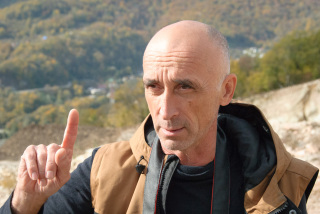
“We’re not an NGO as such,” he said. “We are simply a lose confederation of citizens who are concerned about nature here and each of us has our own area of interest – they can’t stop us from taking nature hikes.”
More ‘personal’ than Moscow’s war on NGOs
Indeed, the current war on EWNC has little to do with Putin’s centerpiece legislative machinations to crack down on NGOs by forcing them onto the Justice Ministry’s list of so-called “foreign agents.” The government’s excessive gouging of the group has been linked to the international bruises caused to Putin’s sacred Sochi cow by its sedulous – and damning – environmental scrutiny.
One group member, Dmitry Shevchenko told Bellona that Russian anti-extremism police had approached him, saying that publishing the report constituted a breach of Russia’s national interests.
The report’s co-authors, Suren Gazaryan and Yevgeny Vitishko have, respectively, fled the country over false accusations of attempted murder, and been imprisoned in Russia’s gulag system for spray painting on a fence – two legal outcomes ludicrously disproportionate to the chain of events that brought them about.
Gazaryan, an expert on bats, has since won the prestigious Goldman Environmental Prize – often called the Nobel Prize for environmentalism. But in an interview with Bellona in April following the award, he expressed deep ambivalence over whether the $500,000 in prize money would do anything to draw more attention to the Kremlin’s Olympic corruption or bring freedom to his imprisoned friend Vitishko, who he feels a palpable guilt about leaving behind.
Vitishko has been named an Amnesty International Prisoner of Conscience. In an interview with Bellona at the Sadovaya prison colony in Russia’s Tambov Region last month, he said he’s never borne Gazaryan any ill will over his decision to flee.
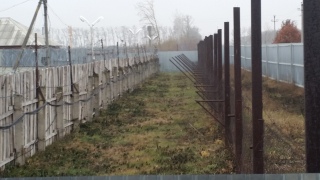
But he also said he’s somewhat fatigued by being the Russian environmental movement’s poster boy. He still has two more years left on his prison term and fears that his politicized status as the so-called Olympics’ “Ecoprisoner” will hinder his ability to pursue his work in environmental geology.
The attacks on EWNC, group member Yulia Naberezhnaya told Bellona in a recent interview in Sochi are “more personal” than what many other NGOs have had to endure under the new regime.
“We are standing in the way of some big state money that still thinks it can turn huge profits from colonizing national park,” she said. “There are powerful forces around the Kremlin that, understandably, don’t like that.”
Naberezhnaya made her observations while showing Bellona a huge build out of Russia state gas giant Gazprom’s corporate ski resort near the Olympic alpine skiing venues. As construction equipment toils away to clear more trees for gondolas and ski slopes, it is encroaching on the Caucasus State Biosphere Reserve – a “reserve” being the highest distinction Russia can give an area of natural preservation.
Meanwhile, during the course of a November day – while the rest of Russia shivers – it was still too warm at this Caucasus mountaintop to wear even a light jacket.
“Who they expect will come to ski here is a mystery,” said Naberezhnaya, kneeling and inspecting the dry construction dust.

A survey of events in the field of nuclear and radiation safety relating to Russia and Ukraine.

But it’s unlikely to impact emissions from shipping along the Northern Sea Route.

In this news digest, we monitor events that impact the environment in the Russian Arctic. Our focus lies in identifying the factors that contribute to pollution and climate change.

The following op-ed, written by Bellona’s Charles Digges, originally appeared in The Moscow Times. In recent months, the Russian nuclear in...